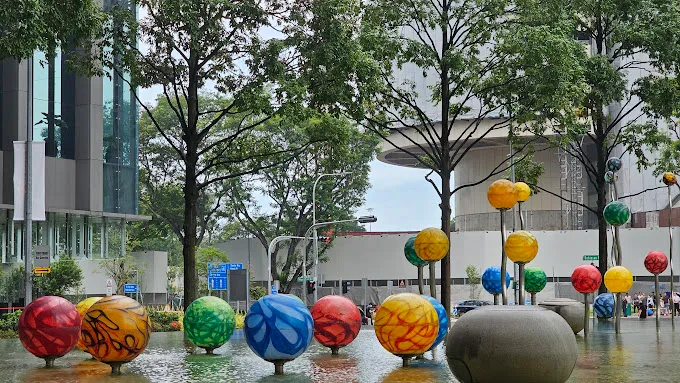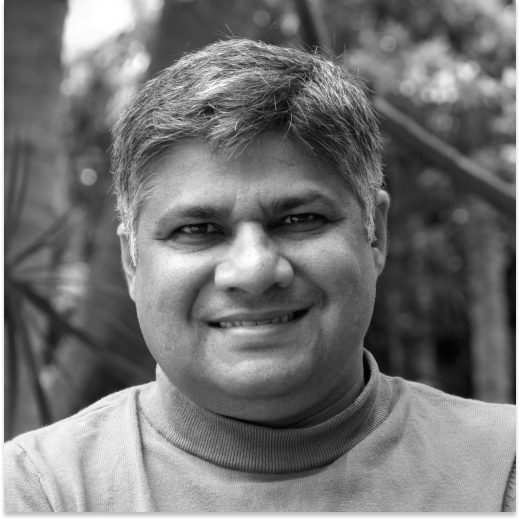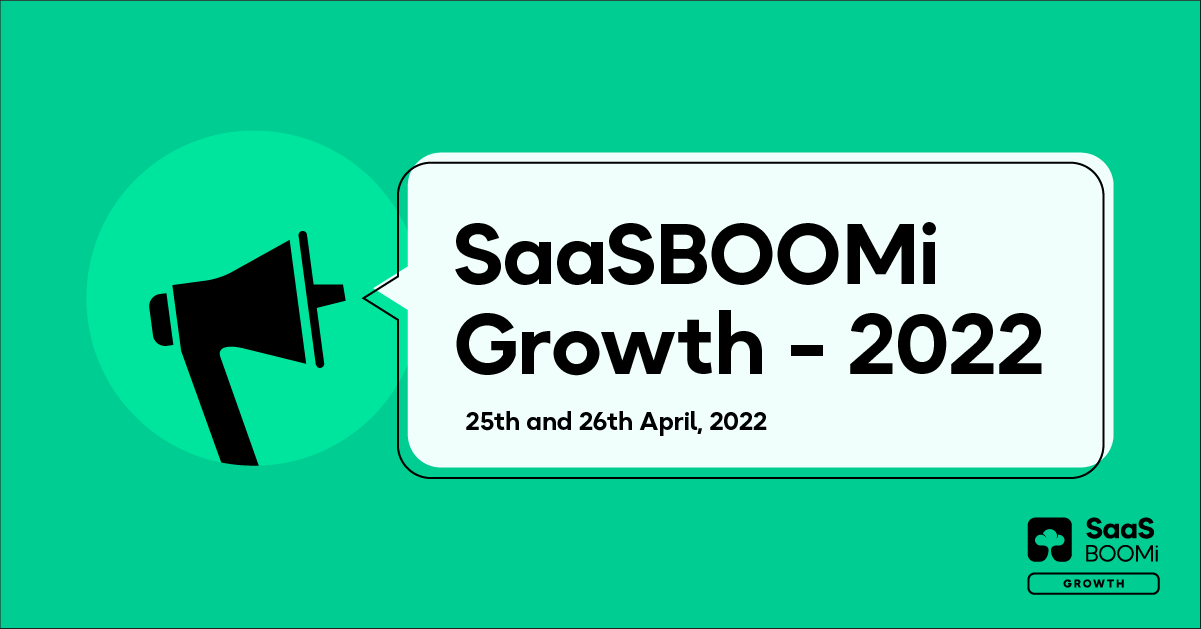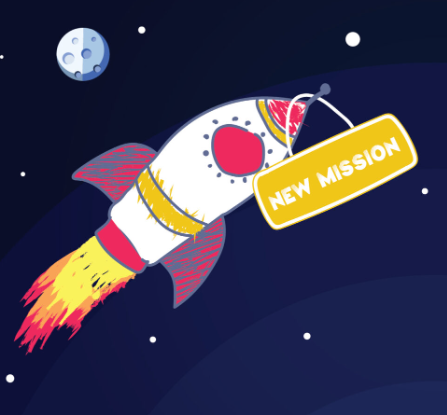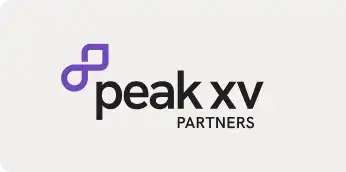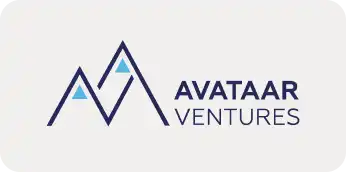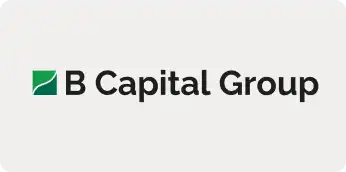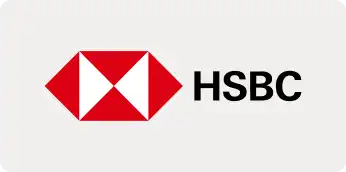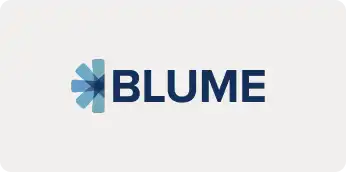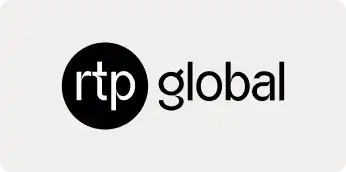SaaSBoomi’s ambition has always been to curate a community that would be composed of vibrant, diverse voices who will help founders grow, scale, and accomplish their potential. We’ve been traveling across the length and breadth of India. Smaller centers, large cities, big metros, we’ve been to them all.
Over the past few years, I have been getting feelers from founders and operators in Singapore. The B2B SaaS ecosystem in the region had started to bloom and it encouraged us to start making plans.
To be honest, we were truly convinced to extend our community to Singapore during the SaaSBoomi Caravan. We met a large number of founders who were running successful businesses out of Singapore and Southeast Asia. At least 70–80 of them. This was a warm group of people, eager to help grow the community. The founders talked about how deepening their network would help startups arriving in Singapore.
Back in 2015, when SaaSBoomi was still called SaaSX, we had a total of 70 founders in all, of which 30 founders were from Bangalore. Singapore, now, is where our ecosystem was all those years ago. And now there is enough depth in the community to bring it together with the SaaSBOOMi magic.
After planning and trying to match the schedules of over five dozen people, we managed to finally fly to Singapore a few weeks ago.
As my flight was preparing to take off, I started to think about Singapore as a city country, Southeast Asia as a market, and the kind of companies that are coming up in that region. Singapore is becoming an important center in Asia. Many brilliant minds from India go there to study at strong universities like the National University of Singapore, NTU, SMU etc. Many of them stay back to start up. Indian professionals are moving to the country to work at Amazon, Google, and Microsoft as they set up large offices in the country.
Apart from the big American companies, the likes of Grab and GoTo have become behemoths in the region. According to a report by CNBC, $4 billion worth of venture capital (up to Series B) was deployed in Singapore in 2022. That is up 14% in volume year-on-year. Add to that the government in Singapore has been offering entrepreneurs the groundwork for innovation.
The Singapore SaaS ecosystem is still in its growth phase and as India’s position in the continent cements, these centres will become more important to help our ecosystem of founders grow and help each other. I also realized that not only will founders in Singapore benefit from the experiences of India-based founders but will also be able to give back a few nuggets of wisdom from their experience in this very diverse ecosystem.
Landing and learning
My flight touched down at 9 AM. I had not even had a chance to miss India when an hour later I found myself sitting down for a hearty Indian meal at Komala Vilas. My first meeting was with Rahul who hosts the UnderstandingVC podcast. We were dining at the famous Indian restaurant where Singapore PM Lee Hsien Loong had treated PM Narendra Modi to lunch. Over the course of the hour, Rahul filled me in on Singapore and how things work there.
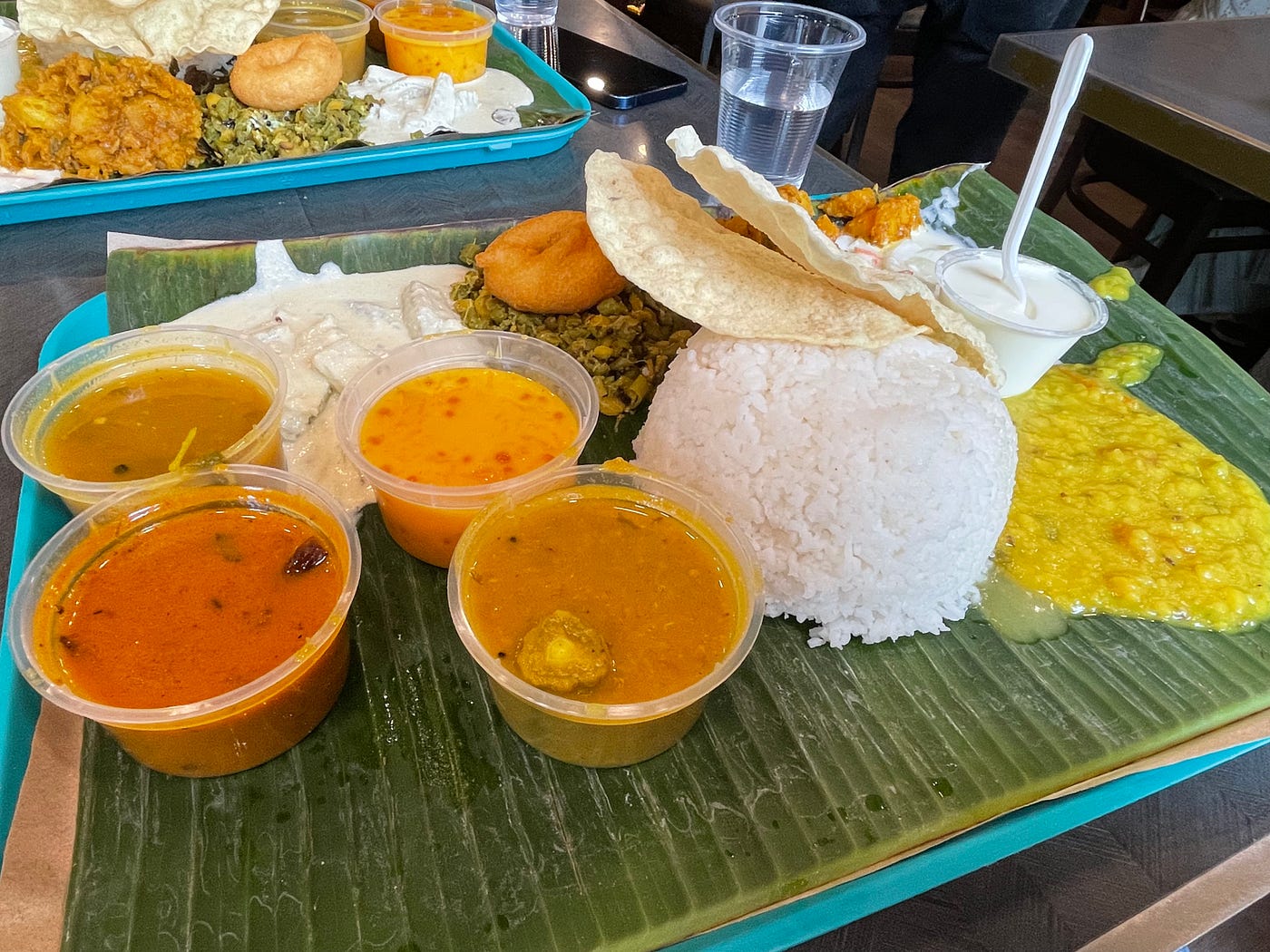
The Meal at Komala Vilas
The activity in Singapore has picked up phenomenally.
After my lunch with Rahul, I realized something. Things just seem to move and work as they should. There is a sense of discipline in the way people in Singapore conduct themselves and carry out tasks. For instance, you cannot light up a cigarette anywhere. There are designated spots for smoking. But the country is built for comfort and I was able to make it from anywhere to anywhere within 30 minutes.
Also, one of the first things I noticed in Singapore is that there are cameras everywhere. It’s hard to ignore the fact that Singapore keeps a serious eye on public behavior. Everyone has their own point of view on privacy vs order but it is a stand the government of Singapore has made and the country seems to have reaped some rewards. And nearly everyone, especially those with young families, seems to enjoy the safety and security the city-country provides.
In contrast, the chaos in India has encouraged jugaad. Yes, as a widespread culture, jugaad is not desirable. But, India’s hustle energy is actually a huge positive when it comes to starting up. That is where Singapore and its founders may need to adapt to drive a startup culture where safety and security may need to give way to jugaad and increased risk appetite. Although founders build and design world-class products from Singapore, I think there may be a need for a more adventurous hustle.
One big factor working in Singapore’s favor is that it is home to major MNCs including Google, Amazon, Stripe, Microsoft, and many others. That clears the path for startups to approach enterprises. The challenge? Hiring is still difficult in Singapore. Talent is not only expensive, it is also really hard to find. This, is despite some of the best talent from India having moved there. And getting visas to import talent, especially for mid-tier roles, is still, I believe, a major challenge.
But there’s one muscle Singapore has, which it should build on — design. It has some of the best design minds in the world. From the way their buildings are constructed to the UI of their apps, they build the best-looking products.
The case for community
Founders and senior operators get together often but the camaraderie seems to still be in its infancy. That collegial atmosphere you want, of everyone agreeing to pay it forward and grow together — the sort of tribal knowledge we routinely share in India is yet to be widespread. There are some very interesting communities that are around such as SEA Founders, which have been doing some great work to help founders scale their companies in the region. But founders still need help with questions like when to build a product, how to start selling, when to sell to Southeast Asia, and when to go to the US. If this were a business-use case, I would say there is space in the market for many such communities, especially high-impact ones such as SaaSBoomi.
In India, we already have the kind of community where founders share their deepest playbook with others. Thanks to founders such as Girish, Freshworks, who are generous about giving their learnings to others, we regularly have roundtable discussions. The last one we did went on for five whole hours. Imagine the value early-stage entrepreneurs get from that — totally unmatched.
For scale, you need to think like a Zoho or a Freshworks. In the early days, these companies had started with the US and not looked at India as a market. That’s an advantage the Indian SaaS companies had.
Another advantage India had was that it was a base for ITES companies which meant we were building early on. That gave India an advantage for talent and building. The presence of MNCs including Yahoo and Adobe really shaped the product management success stories we saw coming out of the country — Flipkart and InMobi, for instance.
Singapore is going through the same growing pains Indian companies did a few years ago. Some companies are trying to craft US GTM strategies from Southeast Asia. Others are trying to sell products that work in Singapore.
To diagnose this better, I asked a few founders what’s missing. And one reason seems to be that companies are still looking at Southeast Asia as one market, their first market. The problem with that is it stops them from considering the US market from the very beginning. Building for Southeast Asia (with its diverse countries, regulations, languages etc.) is very different from building something global from Day 1.
Funding is a challenge there as well. It’s easier to get angel and seed money but early-stage capital is still difficult to procure. And this not just because of the current economic climate, this challenge predates the pandemic too.
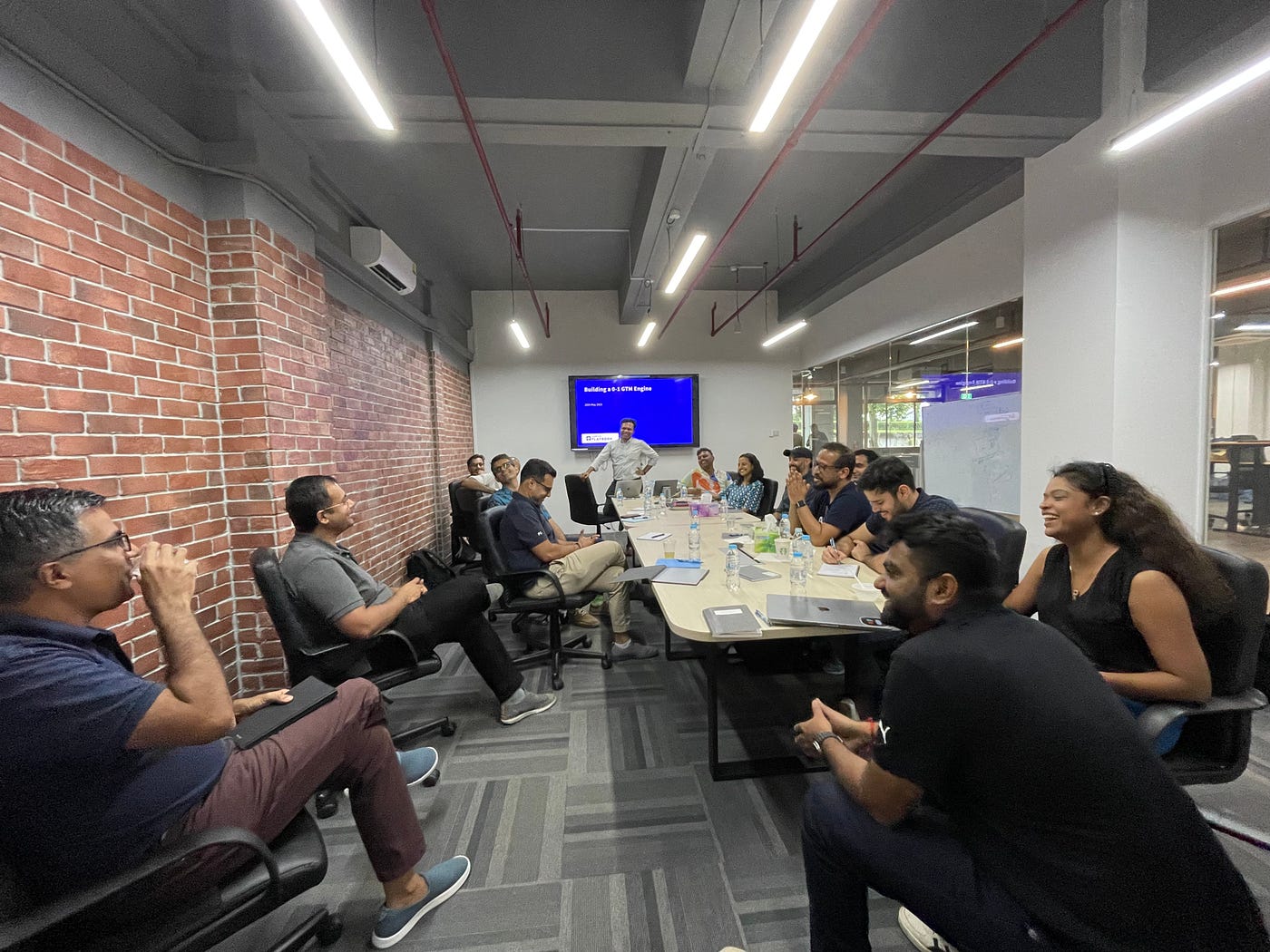
Our first Roundtable with Vengat from Klenty at the Kula office
But there’s a lot going for Singapore
So far, Singapore has shown it has the DNA for building terrific consumer app companies. You have a success story in Grab, Sea, or PropertyGuru for example (all IPOed). But what Singapore does not (yet) have a track record for is building companies with magnitude in B2B SaaS. There are a few companies with serious scale coming out of the country such as Patsnap, Acronis, and Biofourmis, among others. There is space for many more. And for any ecosystem (and my focus is on SaaS) at the stage that Singapore is in, it really does need that to fuel the next wave of growth.
Singapore is on the precipice of doing something interesting. It has a mix of MNCs, which have sales offices in the region, and the likes of Stripe, which don’t have a product management set-up there. Everyone starts from scratch and figures out how to build on it. Singapore does have companies such as Persistent which have always built products but only for international customers. One of the reasons Singapore is special is because it is a melting pot of people from across the world. There are founders and executives from the US, the UK, Europe, China, India, Australia, you name it, there’s around. This type of diversity in thought, experiences, and ideas has the ability to create world-class products and companies.
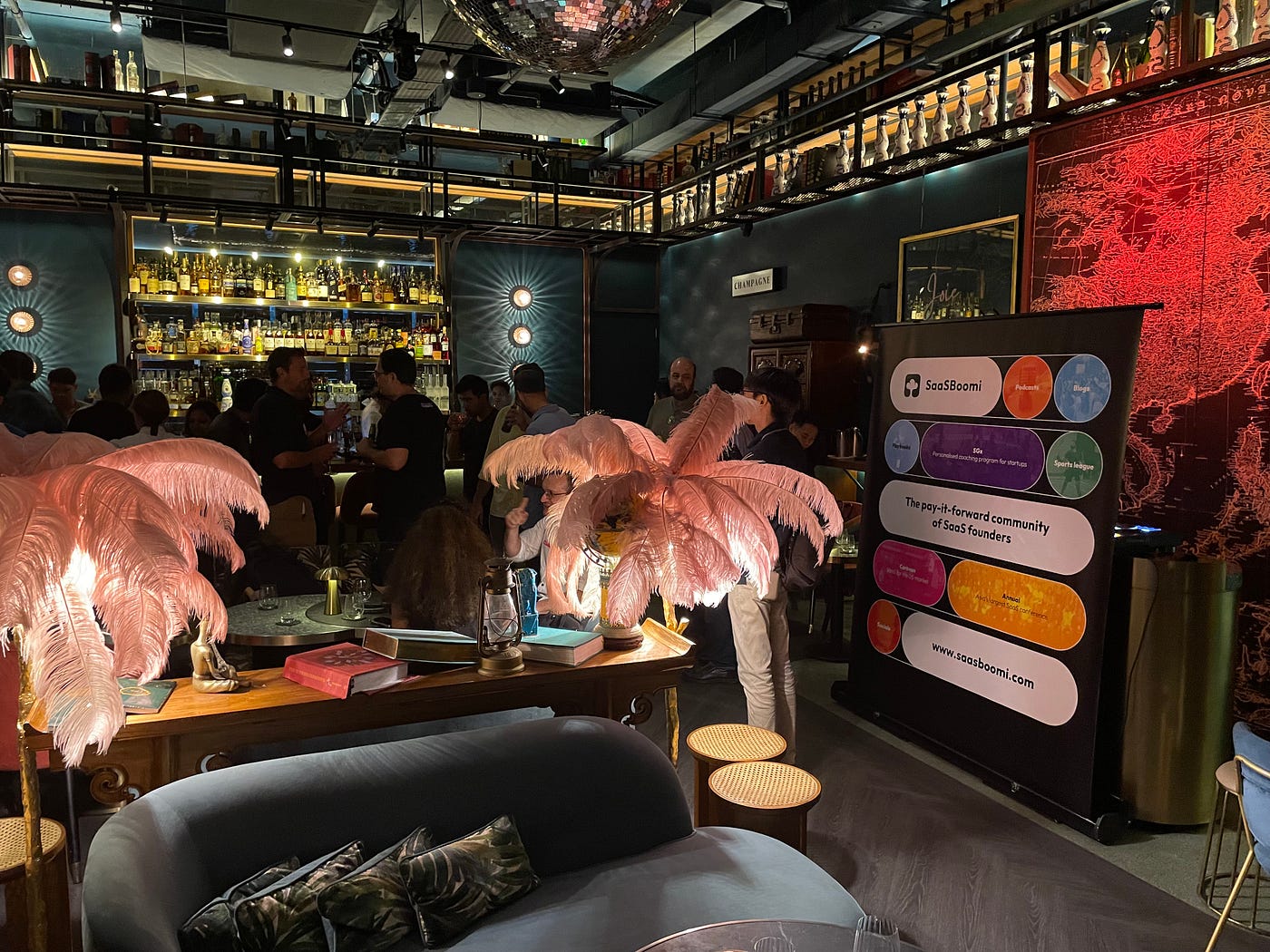
SaaSBoomi Social in Singapore
Support from the government
Stepping into BLK71, you can’t help but be in awe of the favorable conditions that the government provides to startups. This is the tech startup hub of Singapore, where more than 500 startups are incubated, with easy access to space and support. There are striking blue building blocks with 100 companies each — IoT, hardware, climate tech, you name it. You have to applaud this sort of infrastructure.
Do you know how India is trying to support manufacturing with PLI? Singapore is trying to do that with startups. Because of the size of the country, the government works like a private organization. Among one of its ecosystem-boosting schemes is the SMEs Go Digital Transformation Programme, where SMEs are encouraged to buy software to get digital-ready.
Lasting impressions
I have had my fair share of global travels, but I have to say I was singularly impressed by the urban planning and upkeep in Singapore. Everything is clean and green. Cables don’t crisscross in the skyline, they are all concealed underground. Plants cover the outside and inside of structures. I spotted century-old heritage trees, and drove past futuristic ‘Supertree Groves’.
My personal favourite moment was at the Tintin store where I got to relive my childhood among all the colourful comics and posters. As I mentioned earlier in this post, you don’t really get a chance to miss India. There are a lot of diaspora Indians and a lot of Tamil migrants who work in construction. There is also Little India, with scores of shops just like the ones in the markets of Chennai or Bangalore. Singapore is also the first country outside India where I have seen so many temples.
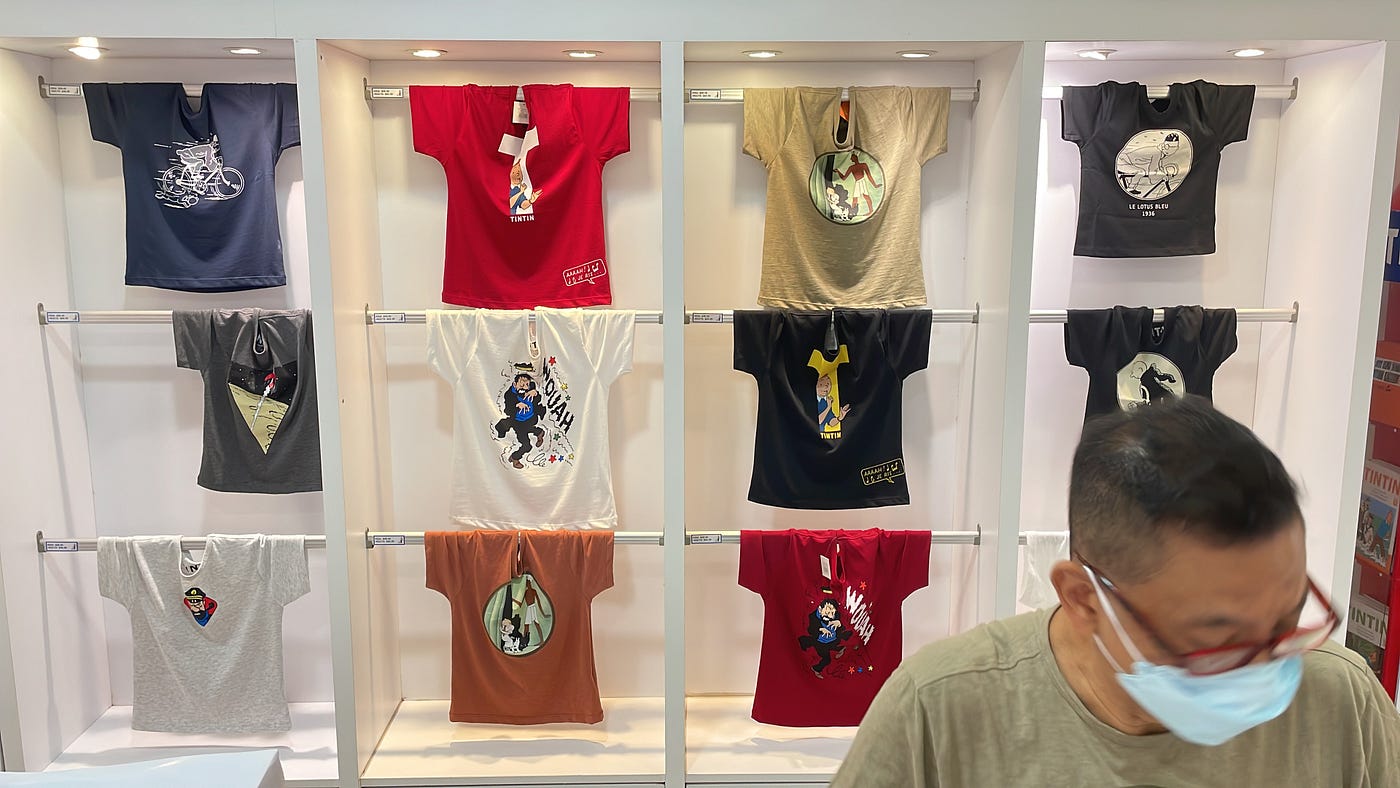
The famous TinTin store in Singapore
An ecosystem is brewing, lah!
Everyone I met on this journey was exceptionally warm. We arranged a social meetup where people could come and experience SaaSBoomi and they welcomed it. This was the most heartening learning of the journey. People have been waiting for it to come and add our energy to the ecosystem in Southeast Asia.
It became clear to me on this trip that this is also an ecosystem where we can give back. We are learning from our activities in the US as people share their learnings there. Singapore, and Southeast Asia, is an ecosystem where we can really help shape how founders build and scale SaaS products. It is our responsibility and this will not just be something we do by Indians for Indians. It will be a community for SaaS founders, by SaaS founders — whatever your origins may be. Everyone will be more than welcome.
It has been less than 2 weeks since I returned from Singapore and my inbox is full of requests from across Singapore to build a community. Founders from Indonesia and Vietnam are writing in too. I traveled to a place that is familiar yet distinctive and came back from one that is full of collaborative possibilities. What we want is to build a community for everyone so that everyone can win.
Special thanks to Krish Sridhar & Naveen Asrani for helping me write this and for walking me through the ways Singapore has grown and evolved. 🙏


